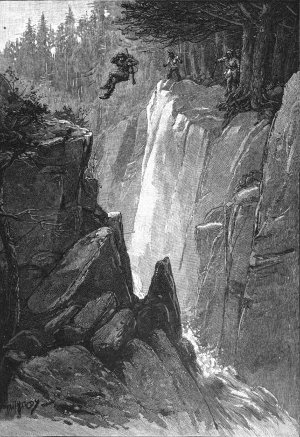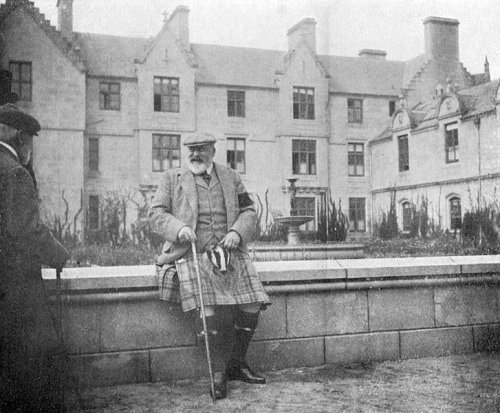
Frontiersman Samuel Brady was being chased through northern Ohio by a band of Sandusky Indians in 1780 when he found his way blocked by the Cuyahoga River:
“He made his way to Standing Rock, and intended to cross at that ford, but the Indians were awaiting him, and he ran farther along the bank, to a place where the rocks rose at some points to a height of twenty-five feet. The body of the river at the narrowest part was from twenty-three to thirty feet wide, and was deep and dangerous. There was no other ford than Standing Rock for miles, and the Indians felt assured of their prize, but faint heart was not known to the Captain of the Rangers, and even a rushing torrent of water did not stop him in his course. Gaining a less precipitous edge of the cliff, he ran back into the forest, to get a good start, and was so near the approaching red men, that he heard their shots and exclamations. Across the expanse of water, at a height of probably twenty or twenty-five feet, he bounded, and with the eye of a practiced marksman, struck the bank on the other side, and stood on the cliff, as the wild yell and wilder appearance of the first pursuer denoted his disappointment and rage.”
Could this have happened as described? The river is broader and its banks much lower than in former times, so it’s hard to judge. The best evidence I can find supporting the tradition is an 1856 letter by Frederick Wadsworth, who writes that “many years ago” he had visited the spot with a companion who had heard the tale from Brady himself. “We measured the river where we supposed the leap was made, and found it between twenty-four and twenty-six feet; my present impression is that it was a few inches less than than twenty-five feet. There were bushes and evergreens growing out of the fissures in the rock on each side of the stream. He jumped from the west to east side; the banks on each side of the stream were nearly of the same height, the flat rock on the west side descending a very little from the west to the east.” Decide for yourself.
(Thanks, Mike.)





